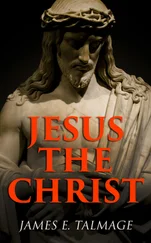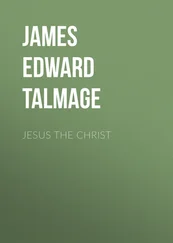1 ...8 9 10 12 13 14 ...25 23. Personality of Each Member of the Godhead.—From the evidence already presented, it is clear that the Father is a personal Being, possessing a definite form, with bodily parts, and spiritual passions. Jesus Christ, who was with the Father89 in spirit before coming to dwell in the flesh, and through whom the worlds were made,90 lived among men as a man, with all the physical characteristics of a human being; after His resurrection He appeared in the same form;91 in that form He ascended into heaven;92 and in that form He has manifested Himself to the Nephites, and to modern prophets. Now we are assured that Christ was in the express image of His Father,93 after which image man also has been created.94 Therefore we know that both the Father and the Son are in form and stature perfect men; each of them possesses a tangible body, infinitely pure and perfect, and attended by transcendent glory, yet a body of flesh and bones.95
24.The Holy Ghost, called also Spirit, and Spirit of the Lord,96 Spirit of God,97 Comforter,98 and Spirit of Truth,99 is not tabernacled in a body of flesh and bones, but is a personage of spirit;100 yet we know that the Spirit has manifested Himself in the form of a man.101 It is by the ministrations of the Spirit that the Father and the Son operate in their dealings with mankind;102 through Him knowledge is communicated,103 and by Him the purposes of the Godhead are achieved.104 The Holy Ghost is the witness of the Father and the Son,105 declaring to man their attributes, bearing record of the other personages of the Godhead.106
25. Some of the Divine Attributes.— God is Omnipresent : There is no part of creation, however remote, into which He cannot penetrate; through the medium of the Spirit the Godhead is in direct communication with all things at all times. It has been said, therefore, that God is everywhere present at the same time; but it is unreasonable to suppose that the actual person of any one member of the Godhead can be in more than one place at one time. The senses of God are of infinite power, His mind of unlimited capacity; His eye can penetrate all space, His ear can comprehend every sound; His powers of transferring Himself from place to place are not limited; plainly, however, His person cannot be in more than one place at any one time. Admitting the personality of God, we are compelled to accept the fact of His materiality; indeed, an "immaterial being," under which meaningless name some have sought to designate the condition of God, cannot exist, for the very expression is a contradiction in terms. If God possesses a form, that form is of necessity of definite proportions and therefore of limited extension in space. It is therefore impossible for Him to occupy at one time more than one space of such limits; and it is not surprising therefore to learn from the scriptures that He moves from place to place. Thus we read in connection with the account of the Tower of Babel, "And the Lord came down to see the city and the tower."107 Again, God appeared to Abraham, and having declared Himself to be "the Almighty God," He talked with the patriarch, and established a covenant with him; then we read "And He left off talking with him, and God went up from Abraham."108
26. God is Omniscient. —By Him matter has been organized and energy directed. He is therefore the Creator of all things that are created; and "Known unto God are all his works from the beginning of the world."109 His power and His wisdom are alike incomprehensible to man, for they are infinite. Being Himself eternal and perfect, His knowledge cannot be otherwise than infinite. To comprehend Himself, an infinite Being, He must possess an infinite mind. Through the agency of angels and ministering servants, He is in continuous communication with all parts of creation, and may personally visit as He may determine.
27. God is Omnipotent. —He is properly called the Almighty. Man can discern proofs of the Divine omnipotence on every side, in the forces that control the elements of earth, and that guide the orbs of heaven in their prescribed courses; all are working together for the common good. There can be no limits to the powers of God; whatever His wisdom indicates as fit to be done He can and will do. The means through which He operates may not be of infinite capacity in themselves; but they are directed by an infinite power. A rational conception of His omnipotence is power to do all that He may will to do.
28. God is kind , benevolent , and loving , tender, considerate, and long-suffering, bearing patiently with the frailties of His wayward children. He is just, yet merciful in judgment,110 showing favor to all alike, and yet combining with these gentler qualities a firmness, almost amounting to fierceness, in avenging wrongs.111 He is jealous112 of His own power and the reverence paid to Him by His children; that is to say, He is zealous for the principles of truth and purity, which are nowhere exemplified in a higher degree than in His personal attributes. This Being is the Author of our existence, Him we are permitted to approach as Father. Our faith will increase in Him as we learn of Him.113
29. Idolatry and Atheism.—From the abundant evidence of the existence of Deity, the idea of which is so generally held by the human family, there would seem to be little ground on which man could rationally assert and maintain a disbelief in God; and in view of the many proofs of the benignant nature of the Divine attributes and disposition, there ought to be little tendency to turn aside after false and unworthy objects of worship. Yet the history of the race shows that theism, which is the doctrine of belief in and acceptance of, God as the rightful Ruler, is opposed by many varieties of atheism;114 and that man is prone to belie his boast as a creature of reason, and to render his worship at idolatrous shrines. Atheism is probably a development of later times, whilst idolatry asserted itself as one of the early sins of the race. Even at the time of Israel's exodus from Egypt, God deemed it proper to command by statute, "Thou shalt have no other gods before me;"115 yet even while He wrote those words on the stony tablets, His people were bowing before the golden calf which they had fashioned after the pattern of the Egyptian idol.
30.It has been stated that man possesses an instinct for worship, that he craves and will find some object of adoration. When man fell into the darkness of continued transgression, and forgot the Author of his being, and the God of his fathers, he sought for other deities. Some among men came to regard the sun as the type of the supreme, and before that luminary they prostrated themselves in supplication. Others selected for adoration earthly phenomena; they marvelled over the mystery of fire, and, recognizing the beneficent effects of that phenomenon, they worshiped the flame. Some saw, or thought they saw, in water the emblem of the pure and the good, and they rendered their devotions by running streams. Others, awed into reverence by the grandeur of towering mountains, repaired to these natural temples, and worshiped the altar instead of Him in whose honor and by whose power it had been raised. Another class, more strongly imbued with a reverence for the emblematic, sought to create for themselves artificial objects of adoration. They made images and worshiped them; they hewed uncouth figures from tree trunks, and chiseled strange forms in stone, and to these they bowed.116
"Nations, ignorant of God,
Contrive a wooden one."
31.Idolatrous practices in some of their phases came to be associated with rites of horrible cruelties, as in the custom of sacrificing children to Moloch, and, among the Hindoos, to the Ganges; as also in the wholesale slaughtering of human beings, under Druidical tyranny. The gods that human-kind have set up for themselves are heartless, pitiless, cruel.117
Читать дальше












